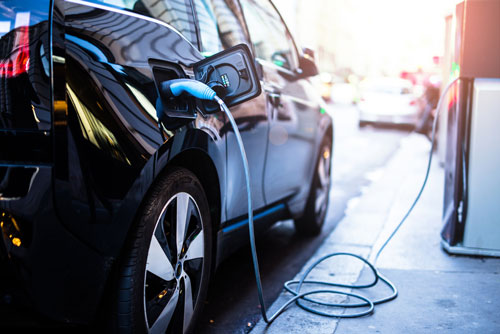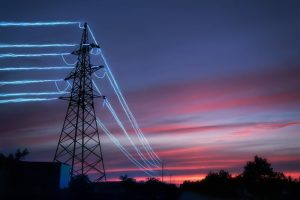Home > Energy Plans > EV Electricity Plans
EV Electricity Plans
Are you wondering what the best EV electricity plan is for charging up your electric vehicle? Find out all about EV plans here with Savvy.
Author
Savvy Editorial TeamFact checked

Are you thinking of getting an electric vehicle (EV), and considering an EV electricity plan? Switching to an electric vehicle can be a game-changer for the environment and your wallet. However, to fully maximise the benefits of owning an EV, it's essential to make sure you’ve got the cheapest EV electricity plan. These specialised plans are tailored to suit the charging needs of electric vehicles, offering competitive rates and incentives for charging at off-peak times. Here we explore the advantages of EV electricity plans, how they work, and what to look for when choosing the best plan to power your electric vehicle efficiently and cost-effectively.
What are electric vehicle (EV) electricity plans?
Electric vehicle electricity plans are special energy plans designed for the power needs of EV owners. These plans offer substantial cost incentives to encourage EV owners to charge their vehicles at the times of day when demand on the national electricity grid is at its lowest. They usually come with discounted rates for charging during off-peak hours when electricity demand is low.
However, not all retailers in Australia offer special EV electricity plans; in fact, as of July 2023, there are only a handful of retailers currently offering such a plan. These include AGL, OVO Energy, Powershop, Red Energy and Simply Energy.
To take advantage of most of these plans, you’ll need to have a smart meter installed, because they rely on time-of-use tariffs which encourage you to charge your EV during the night, when demand on the electricity grid is at its lowest. However, there are substantial benefits to investigating an EV electricity plan, as tariffs are far lower than your usual rate for electricity, which means you can save a bundle on your electricity bill.
For example, OVO Energy offer a plan with an 8c/kWh tariff if you charge your EV between midnight and 6am. This compares with the average Australian electricity tariff of 25c/kWh. This could potentially save you $421 on your electricity bill compared to their standard electricity tariff. This estimate is based on an average of 20kWh/100km and driving an average of 13,800km a year, compared to the anytime tariff from the same company. In addition, a $100 welcome credit is being offered by OVO Energy, which will be paid to you over the 12 months of the contract.
How should I compare EV electricity plans?
When comparing electric vehicle (EV) electricity plans, consider the following comparison points to find the most suitable option for your needs:
Availability: Check which plans are available in your area. Many of the EV electricity plans currently on offer are not available in the NT, WA or Tasmania, for example.
EV charging tariff: Check if the plan offers an off-peak electricity tariff to allow you to charge your EV during specific low-demand periods. These cheap periods may be at night, or during the middle of the day when demand on the grid is low. Compare how many hours in total you are allowed at the cheapest rate.
Standard tariff: Also compare the standard electricity tariff you’ll be charged for your household electricity consumption.
Contract period: Check whether the energy plan is ongoing, or just runs for a specific time period such as one or two years.
Fixed or variable rates: Find out if the contract has a fixed tariff or a variable tariff which can fluctuate according to the electricity price on the national wholesale market.
Supply charges: Compare the supply charge in cents per day.
Fees: Look at any additional fees that may be charged, such as connection and disconnection fees, late fees etc.
Additional offers and benefits: Find out what additional benefits may be on offer. For example, OVO Energy offers the $100 welcome credit, ActewAGL offer a $39 quarterly bill credit, Simply Energy offer a $150 upfront credit and 6% per kWh off the normal usage rate, and so on.
Specific offers are current as of July 2023, but may vary over time, so compare the latest electricity plans through Savvy to make sure you have the most up-to-date information.
What different options are available for charging my EV?
There are various options available for charging your electric vehicle in Australia:
- Home charging: You can charge your EV at home, either using a standard plug or a specially installed home charging station. This may allow you to conveniently charge your EV overnight, taking advantage of lower off-peak electricity rates. However, there may be restrictions and supply issues with charging your EV at home.
- Public charging stations: Many public places, shopping centres, and commercial areas now have EV charging stations. These stations, known as Level 2 charging stations, provide faster charging than a standard home wall outlet. As of December 2022, there were just over 3,000 EV public charging stations in Australia.
- Fast chargers: Fast chargers, also known as Level 3 chargers or DC fast chargers, are available at certain locations across the country. These chargers can rapidly charge your EV, making them ideal for long journeys and quick top-ups. However, at the end of 2022 there were still less than 500 of these DC supercharge stations in the country, with the majority of these in NSW and Victoria.
- Destination charging: Some more upmarket hotels, restaurants, and tourist attractions now offer Level 3 EV charging facilities for their customers, making it convenient to charge your vehicle while you are out and about visiting new areas.
- Workplace charging: Employers are now beginning to provide charging stations at workplaces, allowing employees to charge their EVs during work hours.
It's essential to check your EV's charging capabilities and ensure compatibility with the charging station before using a public charging facility. The rate at which you are able to charge your EV will depend on the exact specifications of your make and model of car, and the power of the charger, which is measured in kWhs.
Can I charge my electric vehicle at home with a standard plug?
Yes, in some circumstances you may be able to charge your electric vehicle at home with a standard plug. All electric vehicles come with a standard charging cable that can be plugged into a typical wall socket, similar to the plugs used for household appliances like TVs and microwave ovens. However, this method of trickle charging may take as long as 24 hours to charge up a completely empty battery.
It's important to ensure your home's electrical system can handle the additional electrical draw from charging an electric vehicle. You may need to look at your home network’s ability to support the additional EV charging load. The energy supply of many homes, particularly those built before 1975, may not have an adequate total electrical supply to handle the task of charging an EV. If necessary, you may need to have an electrician determine if any upgrades are required to support the charging needs of your EV at home.
Additionally, you might consider installing a dedicated home EV charging unit, which will make charging your vehicle faster and more efficient. Installing a dedicated home EV charging unit will significantly speed up charging times. However, home charging stations are mostly limited to 20A single-phase charging, which means for 300km of driving range, a 12-hour charge is required. In more modern or recently-built homes, some electrical installation rules allow for 32A charging, which reduces the charging cycle to 7-8 hours.
How long does it take to charge an electric vehicle?
This will depend on the EV you own, the size of the battery it comes with, and how much charge remains in the battery. Trickle charging from a standard 20A plug to a completely empty battery may take up to 24 hours. A charge cycle with a Level 2 32A charger will take around 7-8 hours to charge a battery, while a Level 3 fast charger can recharge an electric battery in under an hour at maximum efficiency.
Helpful energy guides
Compare energy plans
Disclaimer:
Savvy is partnered with Econnex Comparison (CIMET Sales Pty Ltd, ABN 72 620 395 726) to provide readers with a variety of energy plans to compare. We do not compare all retailers in the market, or all plans offered by all retailers. Savvy earns a commission from Econnex each time a customer buys an energy plan via our website. We don’t arrange for products to be purchased directly, as all purchases are conducted via Econnex.
Any advice presented above is general in nature and doesn’t consider your personal or business objectives, needs or finances. It’s always important to consider whether advice is suitable for you before purchasing an energy plan. For further information on the variety of energy plans compared by Econnex, or how their business works, you can visit their website.










